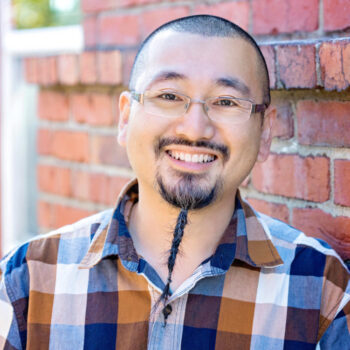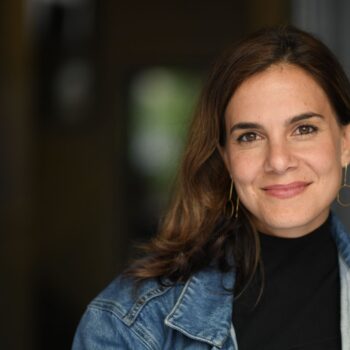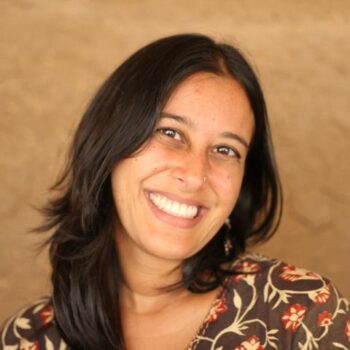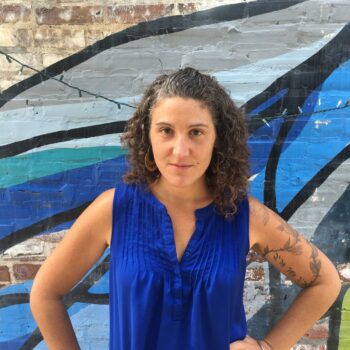Exploring the phenomenon known as “cancel culture” as a collaboration with Convergence Magazine
In this four-part series, we are exploring the phenomenon known as “cancel culture.” We hope to invite more people into conversations about how we work through tension and conflict in our movements, and to offer viable pathways for recognition, prevention, intervention, and healing. Given the profound political moment we are in –– with the unraveling of many democratic rights and freedoms –– it feels more important than ever to strengthen the ways in which we come together on the left. Our capacity to mobilize is strengthened by our ability to work through disagreement and come back from conflict. This series is our humble attempt in this direction.
Part One: Origin Story
This first article shares our origin story. We were all part of a gathering called “Because We Need Each Other,” in which 25 people from across the US came together to grapple with the impacts of a punitive pattern in social change/movement left spaces. We realized none of us had ever had a dedicated time to engage with, much less generate options around, “cancel culture.” The learnings, relationships, and questions of “Because We Need Each Other” serve as the foundation for the entire series.
Why we had this gathering
Taboo and often polarizing, the term “cancel culture” is widely overused. It covers a range of individual and collective behaviors. Sometimes, it describes the enforcement of consequences after wrongdoing. At other times, the term is used to undermine the very need for consequences at all, by belittling the notion that there was harm in the first place and exaggerating the effects of so-called “cancellation.” Still other times, it refers specifically to an online phenomenon, in which groups organize to retaliate against perceived wrongdoing with punishment and isolation.
While the political Right has channeled its version of cancellation into banning books and attacking activists, even in today’s left activist culture, the fear of cancellation often has the effect of shutting down dialogue, dissent, or discussion. We were inspired by those who have published articles, books, and podcasts about various aspects of this experience. With so much digital conversation at play, a group of us wanted to grapple with it in person in a diverse community, to talk it through, and to make it an experience in our bodies. So, in May 2023, we organized a three-day convening in upstate New York called “Because We Need Each Other” (BWNEO).
What we explored at the gathering
We shared a deep curiosity about why we, the social justice movement Left, do this to ourselves in the United States. Perhaps this isn’t just a US-based phenomenon, and yet there does seem to be a prominent cultural incentive in this country to “take someone down” that shows up in many organizing and activist spaces. Many of us expressed the feeling of being “one step away from cancellation” at any moment. Based on more than a decade of experiences like these, the gathering brought together community facilitators, restorative justice practitioners, healers, and organizers for deep dialogue and co-learning.
People shared stories about prior workshops brought to a complete stop because of a confrontation in the room. They described how people’s entire life’s work was called into question because of an online accusation. They explained how escalations around identity, power, and privilege would end with ultimatums and lists of demands. Many times, they felt unable to go through a two-day meeting agenda without tensions escalating into explosions. Over and over, people didn’t have the tools to move through complex conversations without digging in their heels, resorting to blame, and resulting in polarization.
We grappled with the ways we’ve been conditioned to punish and, with that, how the myth of cancellation has been expressed. For example, some of us were raised with the winner-take-all, gladiator approach to disagreement, while others conjured the image of the accused walking the plank. We thought about the experiences of spiritual leaders in exile and assassinated philosophers, or other rule-breaking leaders who were simply unpopular and forced out. This behavior has been happening in different ways across centuries. Sometimes it’s been strategically used to oust dictators, and other times, to annihilate agitational thought. Yet, most of these acts reflect disposability and rely on a worldview in which there is separation between us and them.
At the same time, many of us who gathered also believe that a sense of belonging is a vital part of a healthy community and a sense of self. When people are able to come through a conflict and experience growth or possibility, the ensuing resilience contributes to a deeper sense of belonging. A part of each of us is healed in the process of healing together. How do we promote more belonging, while also ensuring we continue to hold each other and ourselves accountable? We discussed how to practice accountability without spinning into a shame spiral and perpetuating fracturing. Some of us admitted that a part of us wants to punish others. Despite many contradictory experiences, we came together around a shared desire to practice accountability in ways that move us closer to healing, learning, and connection.
We recognized that, at their best, callouts could be a cry for change and reconciliation. How do we appreciate the underlying needs, while at the same time, offer worldviews in which resilience and compassion are central and strategic?
How we engaged together
It felt risky to even have these many-layered conversations and name these questions. People have experienced very different pain points around identity and power and where those factors have intersected (or haven’t) with cancel culture. The three lead organizers, Celia Kutz, Kazu Haga, and Sonya Shah, decided that trust would have to form the bedrock of BWNEO. If they each brought five to 10 people with whom they had a longstanding trusting relationship, everyone in the room would be coming in because of that trust and would inherit the trust from others. In a container in which everyone had someone who ‘vouched’ for them, we could get further, faster. It worked.
Additionally, there was a mix of co-facilitation with different practices present in the room: restorative justice practices, Training for Change’s experiential education, YES! Jam activities, Theatre of the Oppressed tools, generative somatics, campaign/base building organizing, and more. The variety of ways we had conversations made it possible to look at the phenomenon of “cancel culture” through multiple experiences. Throughout the four days we practiced:
- Talking and listening circles;
- Free unstructured conversations in open space;
- Post-it timelines and self-organized prioritization;
- Learning from and with nature and through music and art;
- Roleplays to express our personal experiences of cancel culture;
- Kinesthetic practice like “the machine,” a theatre tool that asked everyone, “If you were to join this moving sculpture of ‘cancel culture,’ how’d that look? What would you do?” Each person in the group joined one at a time, which produced a 15+ person “machine” that embodied many of the simultaneous dimensions of cancel culture.
We also hung out, watched the Celtics, ate delicious food, danced and spent time with the beauty of the land. This created the deeper trust we relied on for when big emotions surfaced, especially for many of the participants who had personally experienced aspects of a cancellation dynamic. None of us had ever been in a room where this was the topic of discussion before.
What we took home
The key takeaway from our gathering –– beyond any discrete action steps –– was the power of airing our questions in a trusted environment. It settled something and left us wanting to have more conversations that examine complex issues.
The diversity of perspectives at BWNEO reflected the diversity of actions that we need for a thriving ecosystem of social movements. As we departed, each person took the experience in a different direction. Some of us launched new workshops; others worked to heal themselves and their own movement spaces. Four of us –– Kazu, Shilpa, Celia, and Erika –– decided to continue the conversation around some of the topics raised, such as the need for more precise language, the role of the internet, the impacts of public shaming, the use of cancel culture as a proxy for punishment, and so much more. That’s the impetus behind this series we’re launching.
The hope for all of us is to cross-pollinate our ideas, rather than to create a unified vision or melting pot version of action steps. Deepening our relationships is one antidote, along with our abilities to acknowledge the wide-ranging impacts of living through multiple levels of crises.
Because we need each other, we understand that we also need worldviews that reflect and commit to wholesome, spiritual practices in our movement spaces. We came together to remember, in the important words of one of our beloved Indigenous elders, that we are all cousins. And that we want to continue treating each other as relatives in our work and communities as we go forward in these times.
————————————
Many big hearts and brilliant minds helped with the launch of BWNEO. We want to especially acknowledge Brooke Lehman, one of the hosts and founders of the Watershed Center. As someone who had witnessed groups navigating the dynamics of cancellation, she was an early initiator of this gathering. We’d also like to shine a light on Tim Harlan-Marks, a participant who immediately understood the stakes and responded: “because we need each other.” The gathering took its name from that insightful interaction. This series is filled with lessons learned by the 25 people who threw themselves into the May 2023 meeting. Thank you for taking the time; we honor your questions, your insights, and your paths. We also want to offer gratitude to Life Comes From It, who funded this project.
As movement-serving media, Convergence and The Forge have committed to sharing lessons and reflections that can help our organizations work as effectively as possible. Many of these were published in the Building Resilient Organizations series.
We welcome stories, reflections, and questions with us at contact.weneedeachother@gmail.com. We hope to deepen the dialogue with you.




